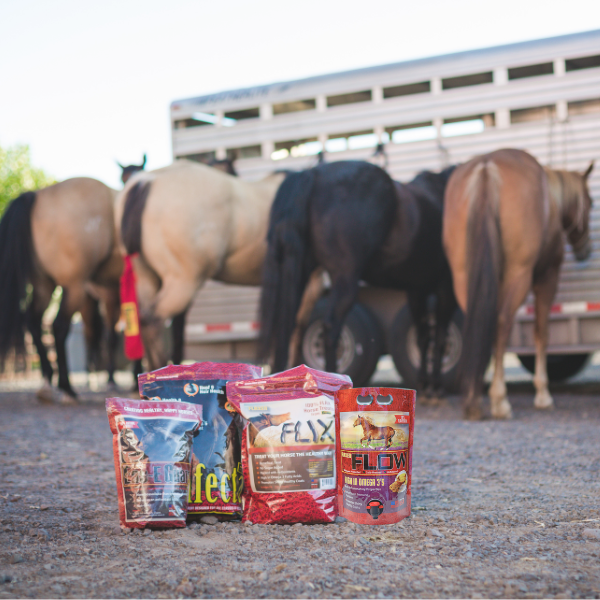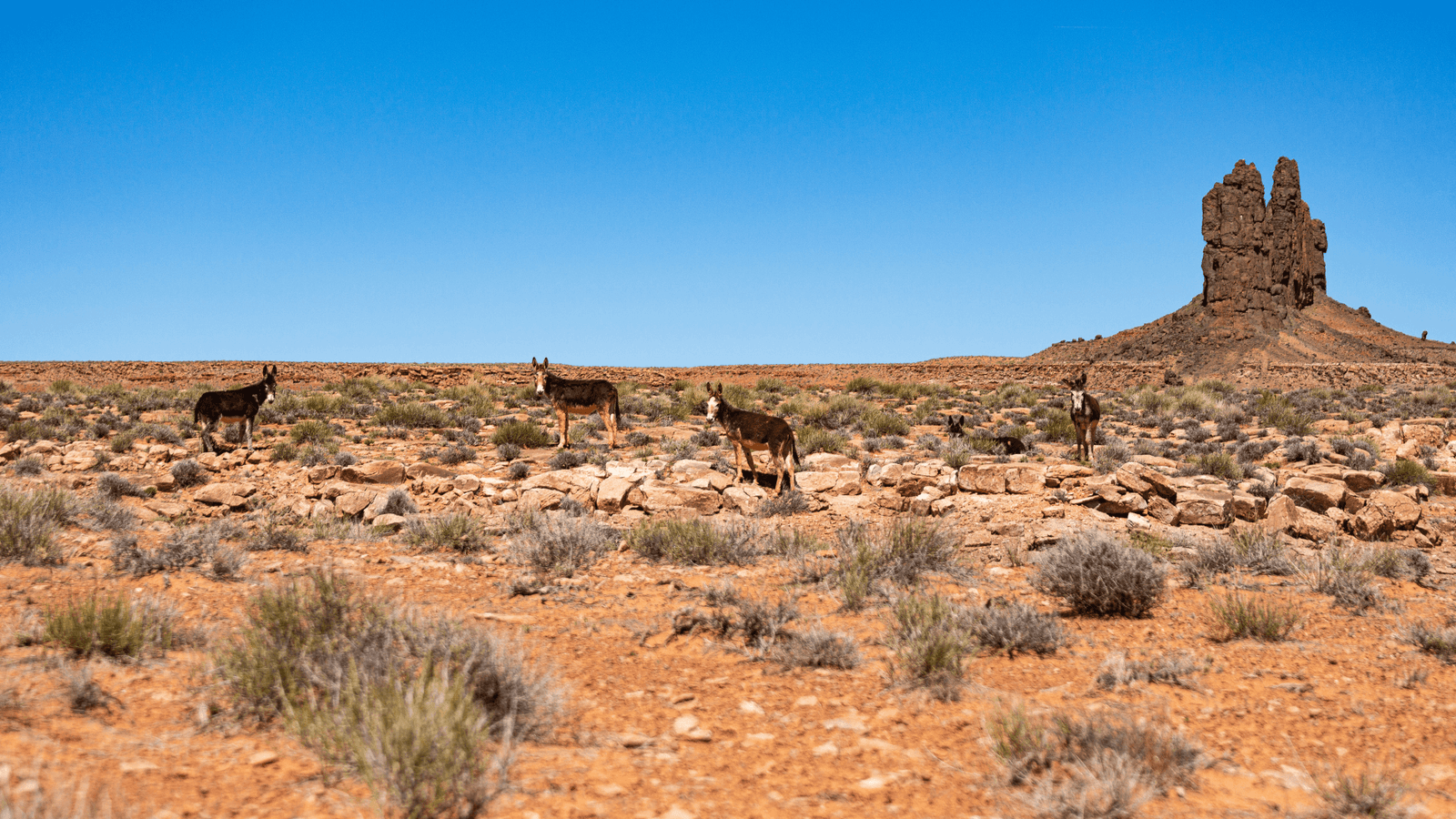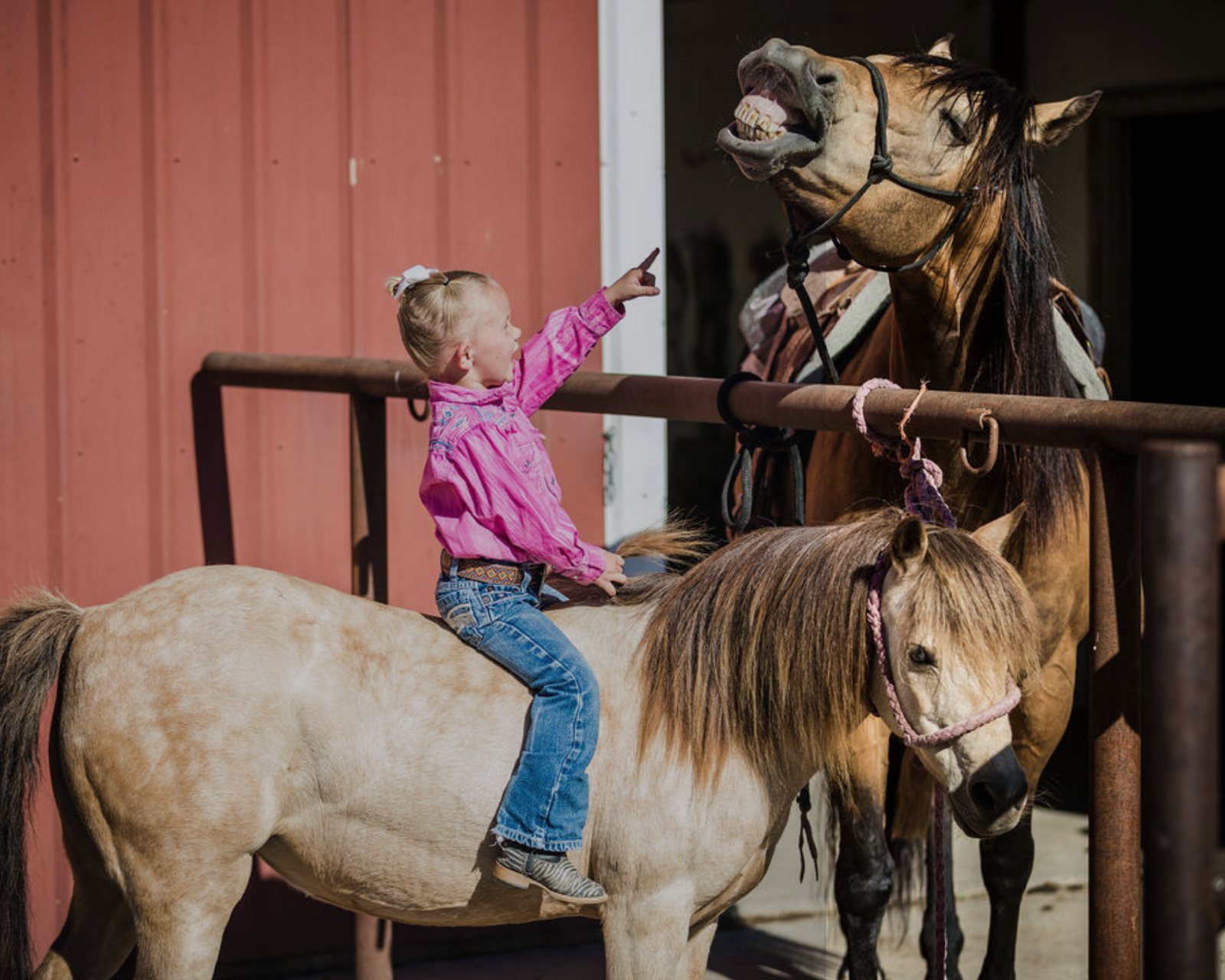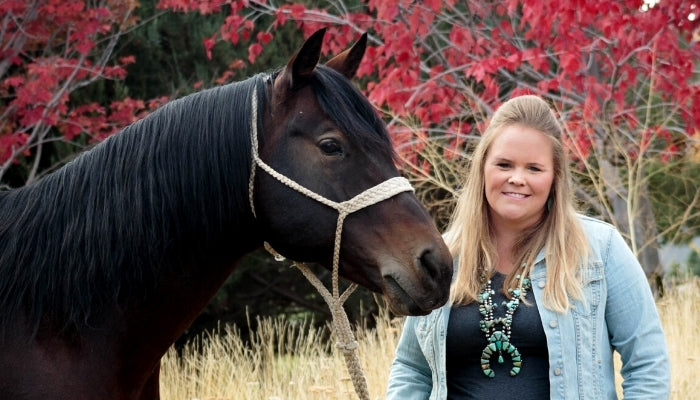Is Donkey Nutrition Different from Horse Nutrition?
When it comes to nutrition, donkeys are hindgut fermenters like the horse. Like the horse, they have evolved as grazers. However, donkeys are browsers as well. By evolving into browsers, donkeys were able to survive in harsh environments on fibrous, low energy feeds that are high in lignin. They are highly efficient in digesting low-quality forages, shrubs, and leaves. Therefore, donkeys have considerably lower (25-50% less) maintenance energy requirements than horses. On average, donkeys consumed 1.3-1.8% of their body weight. However, vitamin and mineral requirements for donkeys are the same as horses.

Being so efficient with feeds makes donkeys very susceptible to health problems associated with excess energy consumption, such as obesity, insulin resistance, and laminitis. Donkeys' diets should consist mostly of low energy, high fibrous feedstuffs, and a vitamin/mineral supplement such as Horse Guard. High-quality hays such as alfalfa should be fed only when body condition is not optimal or workload is heavy. Very rarely, if ever, should donkeys be fed high energy grains or concentrates. Donkeys have a very low tolerance for these and many health issues such as colic, ulcers, or laminitis, are associated with those feedstuffs.
Cushing’s Disease in Donkeys
Cushing's Disease is common in donkeys as it is in horses but the warning signs are more difficult to detect. The current treatment is still the same as for horses but the medication is not perfectly adapted to donkeys and it can make some go off their feed which can result in hyperlipidemia.
Hyperlipidemia in Donkeys
Hyperlipidemia occurs when an animal goes off feed and goes into “negative energy balance” where more energy is being used that what is being consumed, in this state the body mobilizes fat reserves for energy to feed essential organs, under normal circumstances hormones are in place to switch off the fat mobilization, however in donkeys, the fat release may not be able to be stopped and excess fait circulates in the blood, measured as triglycerides. If high triglycerides levels persist, hepatic (and renal) lipidosis may develop causing organ failure and death. Symptoms include lethargy, weakness, decreased water intake and diarrhea. It is very important to maintain a healthy body condition and avoid any stressful situations or anything that will put a donkey off their food.
Colic in Donkeys

General maintenance on donkeys is sometimes overlooked. It is important that donkeys receive the same level of care in dentistry and parasites control as horses. Many parasite lifecycles are the same in donkeys as horses. However, in addition, donkeys are susceptible to liver flukes and roundworm Parascaris equorum throughout their life.
Donkeys are also asymptomatic carriers of lungworm Dictyocaulus arnfieldii: They are the primary host and the worms complete their lifecycles within Donkeys whereas in horses they rarely can reproduce successfully. Lungworm can cause respiratory disease/coughing in horses and ponies. It is important to prioritize prevention over treatment for dentistry and parasite control of donkeys. This can be accomplished by improving their nutrition through supplementing their diets with vitamin and minerals they are missing from their normal diets. We recommend our Horse Guard Supplement to give donkeys all of the essential nutrients they are missing from their normal diets. This includes Vitamin E, Organic Selenium, and Probiotics and Prebiotics to aid in gut health and digestion.
Caring for Donkey's Hooves
Donkey’s feet are very different to horse’s hooves because they have adapted to survive in dry environments. Their feet are

much more efficient than horses at absorbing water, but this means that when donkeys are kept on lush, wet pastures their feet can become soft and they often suffer from foot diseases such as white line disease, abscesses, and thrush. Laminitis is very common in donkeys but by the time they show signs of it, it can often be too late for management. Unlike horses with laminitis that shift their weight and have performance issues, affected donkeys simply lie down and remain fairly stoic. It is important to have the correct hoof care in place.
Proper nutrition, including essential nutrients like biotin, MSM, methionine, and zinc, is crucial for the growth and repair of hooves. Supplementing your horse's diet with one of our Horse Guard Hoof Products will provide all of these nutrients and more. Also, regular professional maintenance, such as trimming every 6-10 weeks, is important to prevent strain on joints and ligaments. Managing your donkey’s environment to minimize rapid changes in moisture levels can help prevent cracks and structural problems. Lastly, regular exercise promotes healthy circulation, ensuring nutrient-rich blood reaches the hooves. By implementing these four strategies, you can support the growth of healthy hoof horn and maintain optimal hoof health throughout your donkey’s life.
Donkeys are very unique animals. They parallel the horse in many ways but are different in many ways as well. Donkeys are very useful in many different societies, and daily life could not function in these cultures without them. We here at Horse Guard salute the humble donkey and the very important role it has played in the history of the world. We encourage all donkey owners to consider the wonderful similarities and differences the horse and the donkeys have, so all our animals can benefit from a healthy and happy life!





Blair Smith
June 06, 2022
Very interesting post!
———
Horse Guard replied:
Thanks Blair! Let us know if you have any questions! We are here to help!